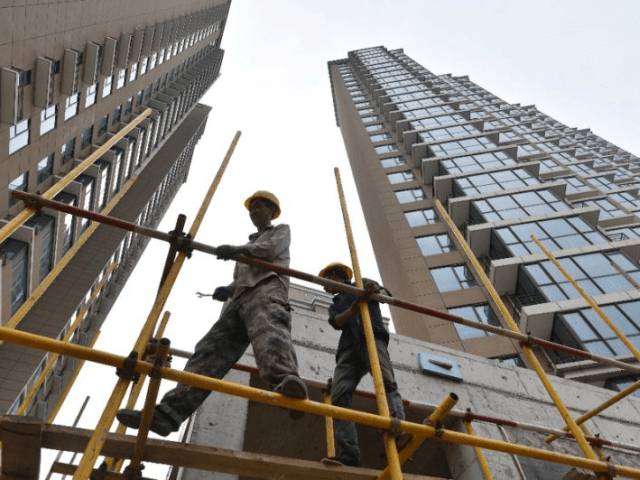China’s state-run Global Times did not enjoy Secretary of State Mike Pompeo’s speech to the Indo-Pacific Business Forum on Monday. A Tuesday editorial by the communist paper responded by accusing the United States of playing “power games” in the Indo-Pacific region.
Pompeo’s remarks included the announcement of $113 million in new American initiatives for energy and infrastructure in the Indo-Pacific. The secretary described the funding as a “down payment on a new era in U.S. economic commitment to peace and prosperity.”
The Global Times saw the $113 million as part of an American effort to compete with China’s massive “Belt and Road” infrastructure project, and was not pleased with Pompeo’s claim that doing business with America will not compromise the sovereignty of Indo-Pacific nations the way taking loans from a certain other global power will.
The Chinese response was intriguingly defensive in nature, despite the hectoring tone of its headline:
If the Trump administration is committed to expanding US trade and investment in the Indo-Pacific region, that would give US companies more opportunities. US enterprises are welcome to join projects under the B&R framework and compete fairly with their counterparts in the local markets.
It doesn’t matter if the US declines to work with China, and Washington’s Indo-Pacific economic strategy can be pursued as an independent platform. There will still be a big infrastructure funding gap in the region, which cannot be filled by one country alone. As long as the business competition is benign, it will help boost economic integration in the Indo-Pacific region and allow everyone to have a piece of the economic cake.
According to Pompeo, the US will not seek domination in the Indo-Pacific, and “will oppose any country that does.” China shares this view. The Indo-Pacific region is a key area along the B&R route, but China will never play a dominant role in the region.
Benign competition will be conducive to development in the Indo-Pacific region, but we don’t want any development program to evolve into a strategic game among big powers. China and the US need to seek common ground while strengthening cooperation with other countries in the region to promote economic integration.
As the Chinese are well aware, “joining” Belt and Road is not quite what the United States has in mind, and it is not what the nervous free nations watching Beijing stretch its hand across the South China Sea are hoping for.
Australia and Japan are working with the United States to develop an alternative to Belt and Road that is explicitly designed to rescue nations hungry for infrastructure investment from China’s debt traps. Just as with Pompeo’s speech to the Indo-Pacific Forum, early advertising for this nascent B&R alternative does not call out China by name. Instead, pointed warnings are given about the dangers of taking on loans that can never be repaid to build white-elephant infrastructure projects that will never turn a profit.
The U.S.-Australia-Japan project will not offer nearly as much money as China has been spending, but the sales pitch is that more modest free-market investments based on sound business plans are better than bags of Chinese cash that have a tendency to vanish into the morass of corrupt local governments or get kicked back to China.
It might be a good idea for the alternative’s salesmen to point out that China’s economy is showing signs of strain after all that big spending on Belt and Road. It will be dangerous to have a significant chunk of one’s national Gross Domestic Product sunk into Belt and Road on the day China’s economy goes wobbly.
Beijing has lately been worried about capital using Belt and Road to flee from China, a pitfall that can only be addressed by tighter political control over Chinese business ventures – which in turn threatens to strangle the “state capitalism” goose that has laid so many golden eggs for China over the decades since Deng Xiaoping’s reforms.
Even a much smaller U.S.-led infrastructure program could make shrewd investments that increase Beijing’s paranoia about capital flight. If nothing else, the existence of an alternative plan should help governments targeted for debt colonization by China drive harder bargains for their Belt and Road money.
If China was fully confident of its ability to conquer the Indo-Pacific region through B&R, its response to Pompeo would probably have been less polite.

COMMENTS
Please let us know if you're having issues with commenting.